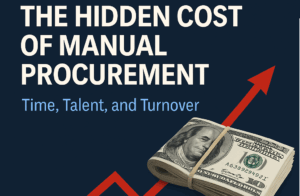Uncover key insights and practical tips to help businesses navigate the complexities of supply chain planning and scheduling amidst the current struggles in the global economy.
In today’s interconnected and fast-paced global economy, effective supply chain planning and scheduling have become vital for businesses to maintain a competitive edge. The ongoing challenges in the global economy demand resilient and agile supply chain strategies. In this article, we will uncover key insights and practical tips to help businesses navigate the complexities of supply chain planning and scheduling amidst the current struggles in the global economy.
Understanding the Current Global Economic Landscape
To excel in supply chain planning and scheduling, it is essential to have a solid understanding of the current global economic landscape. Factors such as trade tensions, geopolitical shifts, natural disasters, and global pandemics significantly impact supply chains. Analyzing market trends, staying updated with industry news, and monitoring geopolitical developments will help you identify potential risks and opportunities, enabling proactive decision-making.
Building Resilient Supply Chain Networks
Resilience is the cornerstone of successful supply chain planning and scheduling. Designing and implementing a resilient supply chain network requires careful consideration of various factors. Diversifying supplier bases, maintaining safety stock, and establishing alternate transportation routes are critical steps to minimize disruptions. Collaborating with trusted partners, implementing advanced technologies, and adopting agile methodologies can enhance the adaptability and responsiveness of your supply chain.
Embracing Data-Driven Decision Making
In the face of evolving global challenges, data-driven decision making is paramount. By harnessing the power of data analytics, businesses can gain actionable insights into demand patterns, supplier performance, and production capacities. Implementing robust supply chain planning software that leverages predictive analytics and machine learning can optimize inventory management, streamline production processes, and enable accurate demand forecasting.
Strengthening Supplier Relationships
Strong and collaborative relationships with suppliers are fundamental to successful supply chain planning and scheduling. Regular communication, sharing forecasts, and fostering trust can help mitigate risks and build a more resilient supply chain. Developing mutually beneficial partnerships with suppliers, including long-term agreements and joint risk management strategies, can enhance supply chain stability and improve overall performance.
Enhancing Visibility and Transparency
Supply chain visibility is critical for effective planning and scheduling. By embracing technologies such as Internet of Things (IoT), blockchain, and real-time tracking systems, businesses can gain end-to-end visibility of their supply chains. This increased transparency enables proactive monitoring, early detection of bottlenecks, and swift response to disruptions. Leveraging cloud-based platforms and collaborative tools facilitates real-time communication and information sharing among stakeholders, fostering seamless coordination and optimization.
Continuous Improvement and Agility
The global economy is dynamic, and supply chains must adapt accordingly. Embracing a culture of continuous improvement and agility is essential. Encourage cross-functional collaboration, empower employees to contribute innovative ideas, and regularly review and optimize supply chain processes. Implementing regular performance evaluations, conducting post-mortems after disruptions, and learning from past experiences can help identify areas for improvement and enhance overall supply chain resilience.
Supply chain planning and scheduling are intricate endeavors that demand a proactive and adaptive approach in the face of current global economic struggles. By understanding the economic landscape, building resilient networks, embracing data-driven decision making, strengthening supplier relationships, enhancing visibility, and fostering continuous improvement, businesses can navigate the challenges, mitigate risks, and optimize their supply chains. Embracing these strategies will not only enable survival in turbulent times but also position businesses for long-term success in the dynamic global economy.
Remember, in the world of supply chains, success lies in the ability to anticipate, adapt, and seize opportunities amidst challenges. By implementing the principles outlined in this article, you can pave the way for a robust and efficient supply chain that thrives in the face of adversity.
The Perfect Planner Team is here if you have any questions about Supply Chain Planning and Scheduling, and we offer a free consultation service. If you would like to connect with us on this article or any other topic, please message us on LinkedIn, shoot us an email at info@perfectplanner.io, visit our website at perfectplanner.io, or give us a call.
Author: Thomas Beil
Publication Date: July 24, 2023
© Copyright 2023 Perfect Planner LLC. All rights reserved.






